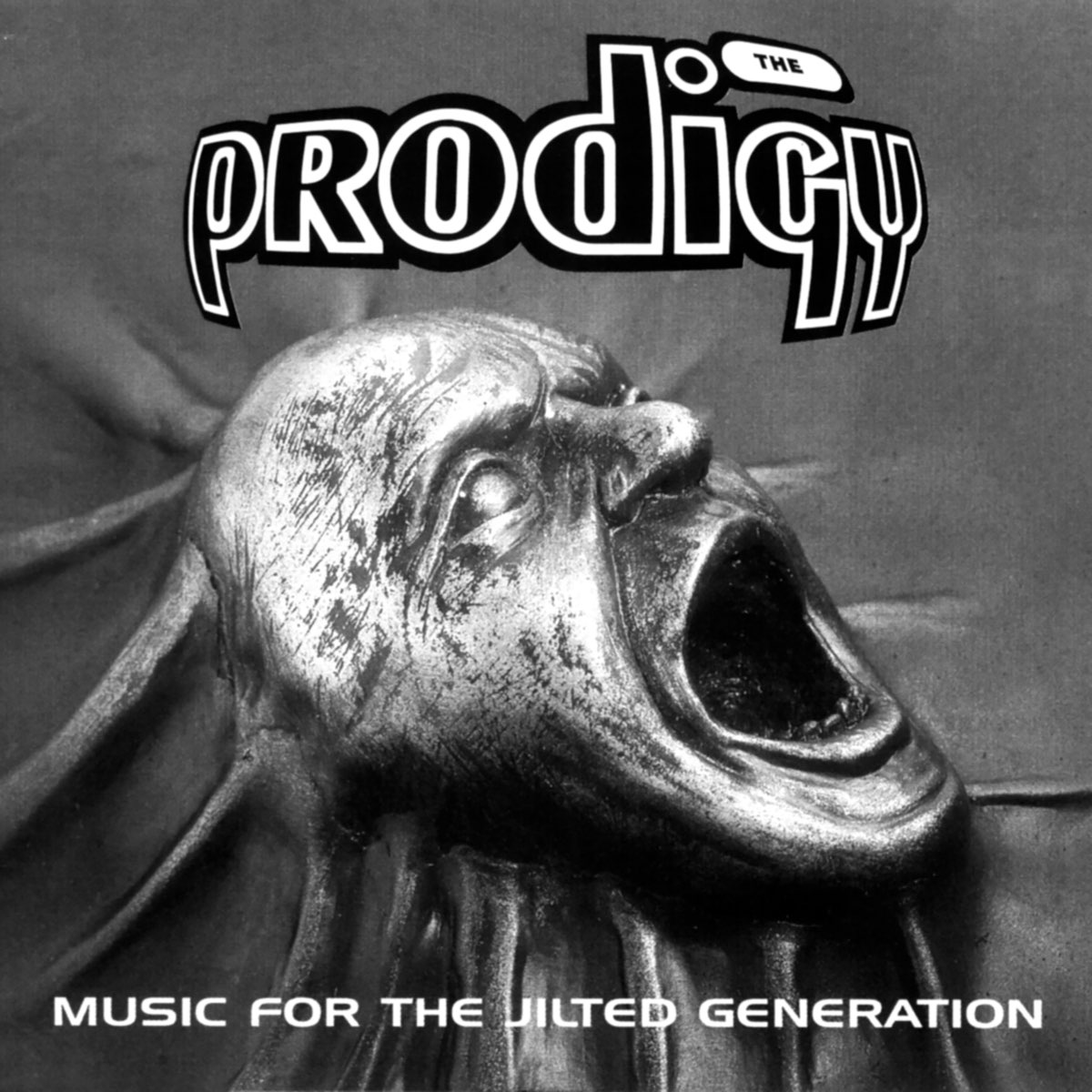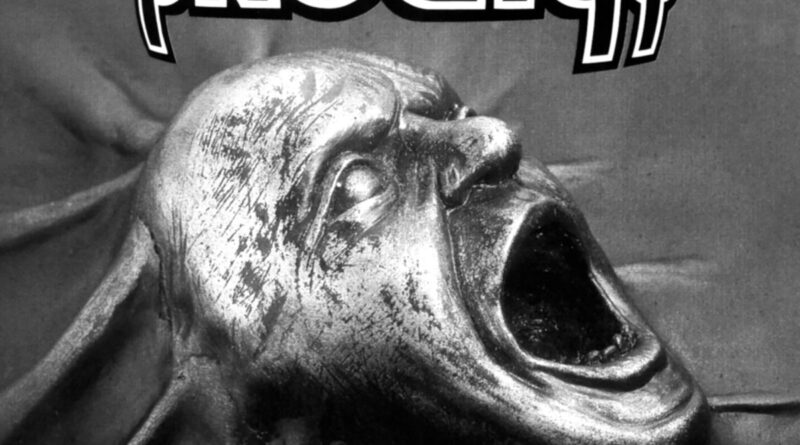HEAVY MUSIC HISTORY: Music For The Jilted Generation – The Prodigy
The year is 1994. The UK is recovering from a recession. Britpop and grunge rule the airwaves. John Major’s Tory party is in power and have just introduced the Criminal Justice and Public Order Act.
The main purpose of the Act was to clamp down on the burgeoning outdoor rave scene by making it illegal to for ten or more people to meet outside to listen to
“music [that] includes sounds wholly or predominantly characterised by the emission of a succession of repetitive beats”.
This ridiculously broad term encompassed the entire spectrum of rave music that the UK was integral in pioneering. Breakbeat, hardcore, jungle, drum n bass, acid house, all reduced to a vague epithet and the thousands of people that would gather in fields each weekend to dance suddenly became outlaws.
This was the backdrop to which THE PRODIGY‘s sophomore album, Music For The Jilted Generation, was set. As bandleader Liam Howlett told Melody Maker in an interview in 1994 just after the album’s release “The Jilted Generation, it’s all the kids who’ve grown up on this supposedly corrupt dance music. The government are trying to make out the whole scene is bad, and they want to stop everyone going out and having a good time.”
Released on XL Recordings 30 years ago this month, it still sounds as fresh as ever while also being very much of its time, providing a polaroid snapshot of the cultural and political landscape of its day.
“So I’ve decided to take my work back underground. To stop it falling into the wrong hands” says a voice on the album’s intro amidst the clanking of a typewriter and brooding synths. It’s a statement of intent that sets the time for what’s to come.
THE PRODIGY‘s 1992 debut album Experience certainly set them apart from the pack, but was still very much rooted in rave, with its pulsing breakbeats, jangly piano refrains and hoover synths.
With Music For The Jilted Generation though, 23 year old wunderkind Liam Howlett took THE PRODIGY into darker territory. He introduced rock and metal guitars, horror movie samples, heavier bass lines and a menacing aesthetic. He was consciously playing into the bogeyman image that the government and media had created of ravers and in doing so created one of the first great dance/rock crossover records.
Perhaps the greatest example of this new, meatier sound is Their Law, which was written in collaboration with grebo act POP WILL EAT ITSELF. Built around a sinister industrial metal riff and a vocal hook defiantly exclaiming ‘fuck ‘em and their law!” it was up until then one of heaviest songs THE PRODIGY has put out and a precursor to they would take on future records.
Their Law provides the album’s most explicit political commentary and is perfectly accompanied by the album’s artwork. While Stewart Hagarth’s cover illustration of an agonized face cast in metal is certainly iconic, the inner sleeve by Les Edwards has arguably become more infamous. It depicts a long haired raver giving the finger to a braying gaggle of police officers as he severs the bridge between them. A perfect visual allegory for the album’s ethos.
Also leaning into the dance/rock crossover vibe was the single Voodoo People, the backbone of which is a guitar riff based on NIRVANA‘s Very Ape. Although many of the sounds on Music For The Jilted Generation were created by Liam Howlett sampling and manipulating sounds from other records and film scores, on this occasion he chose to hire a session guitarist Lance Riddler to recreate the riff. The rest of the track, however is built around drum loops, spoken word sections, flutes and basslines from the likes of LED ZEPPELIN, SIMPLE MINDS, SHAFT, JONNY PATE, and THE LAST POETS.
Although he made a name for himself in the rave scene and in 1994 was leaning heavily into the worlds of rock and metal, Liam Howlett grew up listening to and DJing hip hop. Sampling old records was a fundamental part of early hip hop, and it was the pioneers of that era that inspired Howlett’s mastery of the Roland W-90 sequencer/sampler, on which much of Jilted… was created.
While much of THE PRODIGY’s output had been been created in Howlett’s home studio (nicknamed Earthbound Studios) engineer and co-producer Neil McLellen convicted him, albeit reluctantly, to try working in a professional studio. They agreed to take the singles Voodoo People, No Good (Start The Dance), Poison, and One Love as well as the Voodoo People B-side Goa (The Heat, The Energy Part 2) into London’s Strongroom Studios. Here they could process the original recordings created at Earthbound through Neve desks and add additional live instrumentation.
Although the band were worried at first that the professional setting would make the songs ‘too soft’, it would turn out to be a masterstroke. Howlett and McLellen were able to take the unconventional, DIY approach to recording they’d developed at Earthbound and apply it to a plethora of expensive and hi-tech mixing desks, mics and amplifiers. They would experiment with placement of room mics, even placing them inside a grand piano to capture the strings’ reverberating to the synthesised bass.
The result is an album that sounds huge, with everything pushed to the limit but still sounding crisp as ever 30 years later.
Take Poison for example with its mid-tempo new jack swing, acid bass stabs and thumping 909 drum hits. It’s a hip-hop beat at its core, but with Howlett’s signature studio trickery and MAXIM REALITY‘s iconic vocal hook, it’s perhaps one of the quintessential THE PRODIGY tracks. Interestingly, it’s also the only track on Jilted… to feature a writing credit from one of the other long term band members, MAXIM. Although at the time the shock-haired punk, Keith Flint was an integral part of the band’s live show, he took a back seat in the production of this album. It wouldn’t be until the follow up Fat Of The Land until he took a more active role in writing and co-producing.
The confrontational attitude, genre melding arrangements and technical experimentation earned Music For The Jilted Generation the number 1 spot on the UK album chart. It was the first of THE PRODIGY‘s albums to do so and would set the trend for every album they’ve released since.
A truly game-changing album that three decades on is still as vital and invigorating as it ever was.

Music For The Jilted Generation was originally released on July 4th 1994 via XL Recordings.
Like THE PRODIGY on Facebook.

